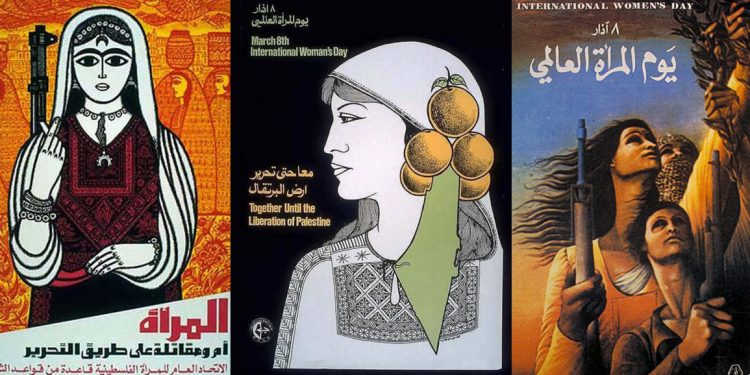“On International Women’s Day, women persist in their struggle against exploitation, discrimination, racism, the oppressive patriarchal system, and occupation. On this occasion, we reject slogans that merely celebrate women based on their biological attributes, viewing them as dependent entities. Instead, our commemoration is rooted in acknowledging women as free and independent beings. This day serves as a reminder of the historical feminist struggle, resilient against exploitation and oppression, aimed at constructing a system founded on freedom and justice.” This is the essence that resonates with me every 8th of March—a sentiment I wish to convey and a definition I wish to uphold.
We do not want to be uprooted; we want to stay. But have we ever questioned ourselves, “What does survival look like?”
For us, Palestinian women, this day serves as a stark reminder of the ongoing challenges we face – from exploitation and discrimination to the burdens of patriarchal oppression and occupation.
The history of feminist struggle in Palestine is deeply intertwined with the broader struggle against colonization. Palestinian women have long been at the forefront of resistance movements, advocating for freedom, justice, and equality. Our contributions to the struggle for liberation are undeniable, yet often overlooked in mainstream narratives.
On this day, our unwavering resilience challenges the political status quo, serving as a testament to the indomitable spirit of a people fighting for self-determination. As the world acknowledges the accomplishments of women. Our struggle transcends the individual to embody a collective resistance against systemic injustices. The political strength of Palestinian women lies not just in the ability to endure, but also in the determination to dismantle oppressive structures and pave the way for a future where freedom and justice prevail over occupation and discrimination.
The security and dignity of women in Palestine is not an issue of women alone, but rather an issue at the core of Palestinian liberation political discourse and action
For our struggle as Palestinian women, disillusionment and despair frequently accompany worldwide feminist days. This emotional response originates not from a lack of understanding of the significance of these days, but rather from observing the co-optation, dilution, and dissociation of these fights from their actual context as patriarchal and capitalist systems take precedence. The sorrow felt when seeing the commercialization of pain, hopes, and lives into mere statistics and reports, feeding regimes that perpetuate injustice, is comparable. Despite this, Palestinian women continue to persevere, remembering those lost to patriarchy and recounting their stories and experiences. The inability to accept a superficial sense of joy or excitement on occasions such as March 8 derives from the continual struggle against oppression and the desire to live without always fighting for that right. The story emphasises the need of maintaining a genuine picture of the struggle, acknowledging the intersectionality of oppressive institutions, and fighting attempts to undermine the collective strength that challenges the current quo. In a world where patriarchal media seeks to present idealised versions of women who conform to existing systems, Palestinian women continue to defend their revolutions and struggles from oppressive forces, emphasising the importance of amplifying the voices of those who share their experiences amidst a cacophony of competing narratives.
Finally, advocacy from feminist organizations, women, and LGBTI+ collectives must transcend vague appeals and recognize the inadequacy of abstract notions of tranquility. The call for a free Palestine from the river to the sea becomes the cornerstone for genuine emancipation for Palestinian women and queers, emphasizing the need for a sovereign state that respects their rights and addresses specific needs. Liberation, not just from external occupation but also from entrenched patriarchal structures, is identified as the true catalyst for lasting change. Palestinian women and queers articulate a vision encompassing legal reforms, an end to discriminatory practices, and the creation of safe spaces that embrace diverse gender and sexual identities. Within the spectrum of Palestinian women’s demands, it is essential to address multifaceted challenges stemming from patriarchal structures. Beyond the overarching call for a free Palestine, specific needs emerge, including legal reforms to ensure equality and protection from discriminatory practices. Palestinian women advocate for comprehensive healthcare services, accessible and inclusive educational systems that empower women, challenge traditional gender norms, and employment opportunities free from gender bias. Policies promoting equal pay are seen as integral to dismantling systemic inequalities. Additionally, the creation of support networks and safe spaces becomes paramount, fostering an environment where women can voice their experiences and concerns without fear of reprisal. These nuanced demands reflect the depth of the struggle faced by Palestinian women and underscore the imperative for a holistic approach toward their liberation within the framework of a free Palestine.


